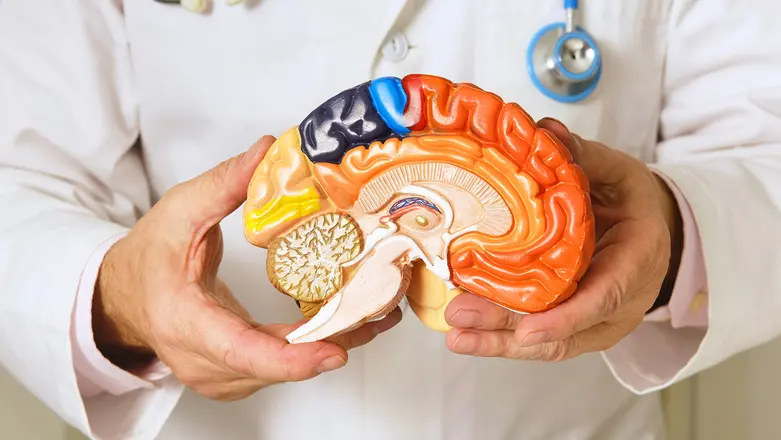-
-
Featured Care Areas


Neurosurgery (Brain & Nerves)
Related neurological conditions
Neurosurgery may be required to treat neurological conditions such as brain tumours, neurovascular disorders, spine disorders and head injuries. Examples of neurological conditions include:
Brain tumour and neuro-oncology conditions
Acoustic neuromas are non-cancerous and usually slow-growing tumours that develop on the main (vestibular) nerve leading from your inner ear to your brain.
Other tumours and neuro-oncology conditions include:
- Cranial nerve neoplasms (abnormal tissue mass)
- Lesions of the petrous apex including cholesterol granulomas and cholesteatomas
- Developmental and congenital abnormalities including basilar impression and Chiari malformation
- Tumours of the cerebellopontine angle and jugular foramen such as meningiomas, schwannomas and glomus tumours
- Osteoradionecrosis
Other conditions related to brain tumours and neuro-oncology include:
- Glioma, a common type of brain tumour
- Glioblastoma, an aggressive type of cancer that occurs in the brain or spinal cord
- Meningioma, a primary central nervous system tumour that involves the orbit, frontal fossa, sphenoid wings and cavernous sinus.
- Metastatic tumour, a type of cancer that has spread from the part of the body where it started to other parts.
- Astrocytomas, a type of cancerous tumour that forms in the brain or spinal cord
- Other tumours of the orbit and cavernous sinus
- Pituitary and other tumours of the sella
Skull base disorders
The cranial base, also known as the skull base, is a bony shelf that separates the brain from the eyes, nasal cavities, ear canals and upper neck. Every nerve that connects the brain with the rest of the body must pass through this area.
Examples of cranial or skull base disorders include:
- Cerebrospinal fluid leak
- Craniofacial vascular malformations
- Anterior and middle cranial base disorders
- Posterior and lateral cranial base disorders
- Bone tumours including chordoma, chondrosarcoma and fibrous dysplasia
Dementia
Dementia is an illness that leads to a decline in mental, judgemental, and behavioural abilities. Types of dementia include Alzheimer’s disease and vascular dementia (caused by multiple brain strokes).
Epilepsy and seizures
Epilepsy is a central nervous system (neurological) disorder in which brain activity becomes abnormal. This may cause seizures or periods of unusual behaviour, sensations, and sometimes loss of awareness.
A person is diagnosed with epilepsy when they have had two or more seizures. Seizures can affect both sides of the brain (generalised seizures) or just one area of the brain (focal seizures).
Movement disorders and Parkinson’s disease
Movement disorders refer to a group of neurological conditions that result in disorders of normal body movements, such as Parkinson's disease.
Parkinson's disease is a common neurodegenerative disorder that is characterised by arm or leg tremors, stiffness of limbs or body, slow movement and stability problems when walking or standing.
Neurotrauma conditions
Conditions related to head or spine injury include:
- Comas
- Head injuries
- Skull fractures
- Traumatic compression of the optic nerve
Sudden injury may cause bleeding in the brain or skull, resulting in the following conditions:
- Subdural hematoma (SDH), where blood collects between the skull and the surface of the brain. Types of subdural hematoma include acute subdural hematoma and chronic subdural hematoma.
- Extradural hematoma (EDH), bleeding between the skull and the outer protective lining that covers the brain
- Intracerebral hematoma (ICH), bleeding within the brain tissue
Neurovascular conditions
Neurovascular conditions are diseases or disorders that occur within your brain's blood vessels, such as:
- Arteriovenous malformation (AVM), an abnormal tangle of blood vessels that disrupts normal blood flow and oxygen circulation.
- Vascular lesions including aneurysms, angiomas and arteriovenous malformations
- Brain aneurysm, a bulge or ballooning in a blood vessel in the brain.
- Carotid artery disease, a blockage caused by fatty deposits (plaques) clogging the blood vessels that deliver blood to your brain and head (carotid arteries).
Sleep disorders
Sleep disorders can negatively affect physical health and emotional well-being, impairing quality of life. There are a number of neurological conditions that can interfere with the brain's control of sleep and wakefulness, causing disruption of normal sleep patterns.
Spine and peripheral nerve conditions
The peripheral nervous system connects the brain and spinal cord (central nervous system) to the rest of the body. Conditions that affect the spine and peripheral nerves include:
- Disc herniation
- Carpal tunnel syndrome
- Cervical radiculopathy ("pinched" or compressed nerve)
- Sciatica, pain caused by irritation, inflammation, pinching or compression of a nerve in the lower back
- Spondylosis (degenerative spine disease)
- Spine disorders
- Spinal tumours
- Spinal trauma
Stroke
A stroke occurs when the blood supply to part of your brain is interrupted or reduced, preventing brain tissue from getting oxygen and nutrients. The brain can incur damage in a short period of time as a result.
Strokes can be classified as either haemorrhagic (when a blood vessel ruptures and bleeds) or ischemic (when blood flow to an area is compromised).
*This is not a complete list of all the conditions that we recognise and treat. The information provided is for educational reference only and should not be seen as medical advice.
Please consult one of our qualified healthcare specialists for an accurate diagnosis before starting any treatment.
This page has been reviewed by our medical content reviewers.
Need help?
For enquiries, please call
+65 6575 7575
For appointment bookings, please WhatsApp
+65 8111 9777



